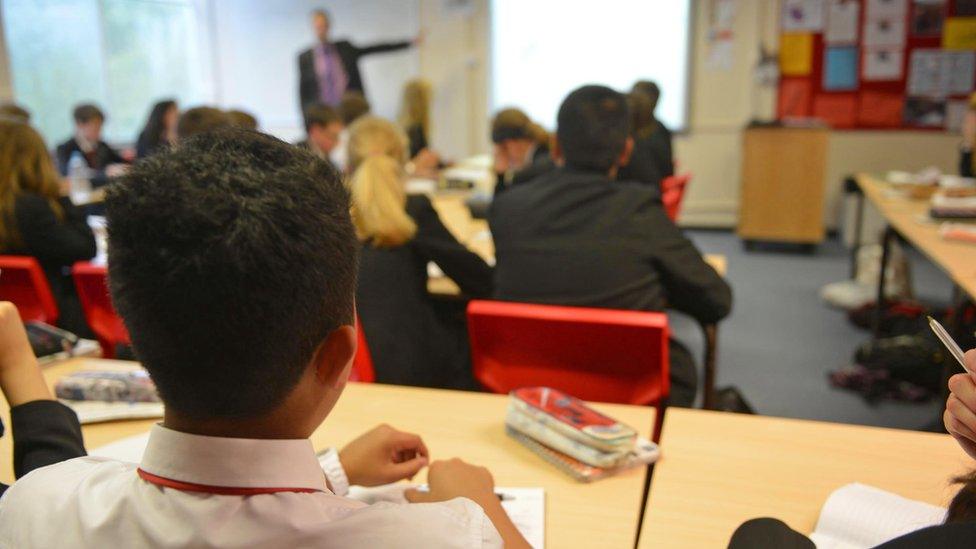Wales reading and numeracy tests to be taken online
- Published
- comments

Annual reading and numeracy tests for children aged from six to 14 will be taken online from September next year, the Welsh Government has said.
Paper tests are being replaced with personalised online assessments which adapt to pupils' skills, providing an appropriate level of challenge.
Liberal Democrat education secretary Kirsty Williams said it will benefit pupils, parents and teachers.
Plaid Cymru and the Welsh Conservatives both warned of "potential pitfalls".
UKIP has been asked to comment.
Since 2013, all pupils in Wales in years 2-9 sit an annual reading and numeracy test, which ministers say help teachers monitor progress and identify where help is needed.
According to the Welsh Government, the advantages of testing online are:
Assessments are tailored to individual pupils
More-detailed information on pupil performance
A reduction in feedback times
Schools will be able to test classes, small groups or individuals according to their facilities and at a time which works for them
The tests have been specifically designed for use in Wales and will be phased in over three years, starting from the 2018-19 academic year.

Education Secretary Ms Williams, who sits in the Labour-led cabinet, said: "These tests are about raising standards by showing the next steps that children need to take in their learning.
"Pupils will be taking assessments that will adapt to their needs and skills. They will have the benefits of automatic marking and schools will have feedback faster than before, giving them a better picture of how they can help all their learners to move on."
Plaid Cymru shadow education secretary, Llyr Gruffydd, said teacher assessments "provide a much more-meaningful overview of pupil achievement than crude testing".
"It's teachers who are best placed to understand the progress and needs of individual pupils," he said.
"If the Welsh Government is to persist with testing, however, anything that reduces bureaucracy should be welcomed in principle but assurances need to be given that online assessments will not weaken the focus on the individual."
Mr Gruffydd added there were also "potential pitfalls" in dealing with poor broadband access in certain parts of the country.
'Unacceptable'
Welsh Conservative AM Darren Millar said the tests represented a "welcome opportunity" to measure pupil progress and allow performance comparisons between and within schools.
But he said it "conveniently ignores the unacceptable fact that hundreds of children across Wales are still at an educational disadvantage because of inadequate broadband connectivity both at home and in school".
He said the Welsh Government "must take urgent steps to redress this if they are to successfully roll-out the new testing regime".
UKIP education spokeswoman Michelle Brown said: "Over the years, the government have failed to attract people to come and teach in Wales, so they are now having to move towards 'robotic' classrooms, where computers are taking the place of teaching staff.
"Education standards have continually worsened under Labour, and if I were the education minister I would concentrate more on getting the teaching side right in the first place, before trying to automate the way children are tested."
- Published19 January 2017

- Published24 January 2017

- Published6 December 2016
